Using Design Thinking to Thread the Social Determinants of Health into Undergraduate Curriculum
March 09, 2023
2:00 PM - 3:00 PM (ET)
Webinar Details
Nurse educators Dr. Mary Jo Vetter, Dr. Karyn Boyar, Dr. Stacen Keating, and Dr. Emerson E. Ea describe how design thinking was utilized as a unifying framework to foster an understanding of the social determinants of health in an undergraduate nursing program. Students utilize design thinking to develop innovative solutions for clinical problems experienced by diverse populations across all spheres of care in a series of four sequenced courses. Details of the teaching strategy and how it supports the acquisition of competencies defined by AACN Essentials are shared.
Objectives:
- Describe how design thinking was utilized as a unifying framework to foster an understanding of the social determinants of health in an undergraduate nursing program.
- Discuss teaching strategies utilized to promote the acquisition of competencies defined by AACN’s Essential Core Competencies for Professional Nursing Education.
- Explore methods to evaluate competency-based student outcomes.
Speakers
Speakers
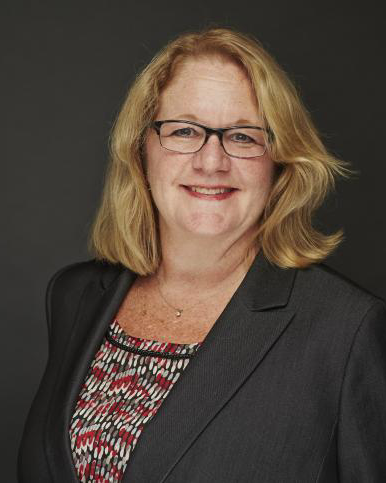
Mary Jo Vetter, DNP, RN
Director, Doctor of Nursing Practice Program and Clinical Associate Professor
New York University
Mary Jo Vetter is a Clinical Associate Professor and Director of the DNP Program at NYU Meyers College of Nursing. Dr. Vetter co-led the integration of Design Thinking in the undergraduate curriculum at Meyers. As a nurse entrepreneur, she engages in clinical practice as the founder of VetterAPN Consulting promoting clinical and care management strategies to support successful aging in place. Dr. Vetter focuses her scholarship on evidence-based quality improvement, designing and implementing cutting-edge, NP led, primary care services in the community, and virtual care delivery. She has a proven track record of innovation in practice and education that focuses on promoting the nurse practitioner as leader and has received awards and accolades for her contributions to clinical academic partnerships, advancing and leading the profession, and transforming advanced practice nursing.
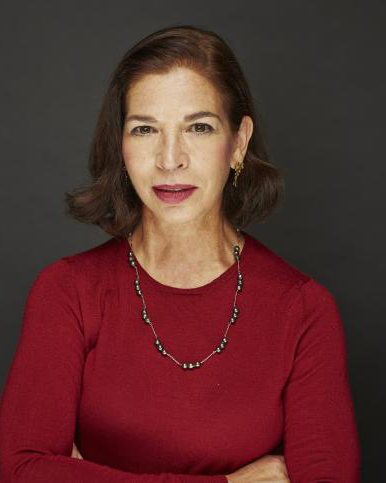
Karyn Boyar, DNP, RN
Director, Master of Science, Clinical Research Program and Clinical Assistant Professor
New York University
Karyn Boyar is an Assistant Clinical Professor at NYU Rory Meyers College of Nursing, the director for the Master in Clinical Nursing Research Program, Interim FNP Program Director, as well as a Certified Nurse Educator. As an educator and family nurse practitioner specializing in neurology and long-term care, she teaches both didactic and clinical courses and simulation. She has over 25 years of experience in healthcare and over ten years of experience in the clinical care and management of patients with Parkinson’s disease and Dystonia. Before joining the faculty at NYU, Boyar was the clinical specialty coordinator at Mount Sinai School of Medicine and the designated outreach coordinator for the National Parkins on Center of Excellence at the Robert and John M. Benheim Center for Movement Disorders. Boyar earned her DNP from Pace University and MS and BS in nursing science from Pace University. Currently, she serves on the board of directors of the IARCN (International Association of Clinical Research Nurses) as a member-at-large. Her current scholarship focus; bringing Design Thinking Models to life for undergraduate students in the large classroom. She has presented her work on Design Thinking on the local, national and international levels and has contributed several book chapters disseminating this innovation in teaching.
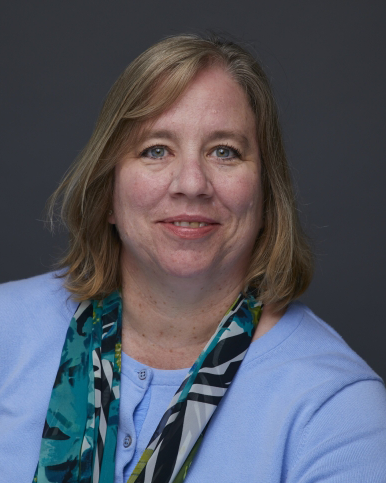
Stacen Keating, PhD, RN
Clinical Associate Professor
New York University
Stacen A. Keating is a Clinical Associate Professor at NYU's Rory Meyers College of Nursing. Dr. Keating teaches across programs in both the undergraduate, graduate and doctoral departments (DNP). She has established competencies in Instructional Design as well as Design Thinking (DT). Design Thinking is a means of teaching nurses a framework of creative thinking and innovation and has established a process for utilizing this framework within her public health classes. Her areas of scholarship interest are further focused on global public health. She has written numerous publications related to both educator and student needs. A key focus has been to assist nurse educators and students attain access to the most evidenced based resources to achieve excellence within professional nursing practice. Dr. Keating is on the Nursing Advisory Board for Nurses International, a 501c3 organization devoted to providing excellence in global nursing education, especially in countries with limited resources. Dr. Keating has developed educational products in collaboration with colleagues at Nurses International which are open access resources and are readily available at Nurses international's main website. Key courses relate to: oncology nursing, fundamentals of nursing and medical surgical nursing. Additional courses taught at NYU include: Community/Public Health Nursing (UG), Applied Epidemiology (DNP), Environment and the Health of Populations (G) and Psych Nursing (UG, simulation).

Emerson E. Ea, PhD, DNP, APRN, FAAN
Dean, Clinical and Adjunct Faculty Affairs
New York University
Dr. Emerson Ea is the associate dean and a clinical associate professor at NYU Rory Meyers College of Nursing. His scholarship interest areas include nursing education and innovation, immigrant health and well-being, and cardiovascular health. He has published peer-reviewed articles and authored/co-authored books and several book chapters on topics that relate to work and personal-related outcomes among internationally educated nurses, Filipino immigrant health, gerontologic nursing, and nursing education and practice. Dr. Ea was part of the inaugural cohort of the American Academy of Nursing Jonas Policy Scholars working with the Cultural Competence and Health Equity Expert Panel (2014–2016). Dr. Ea is a Fellow of the American Association of Colleges of Nursing Leadership in Academic Nursing Program, the New York Academy of Medicine, and the American Academy of Nursing. He is also chair of the Kalusugan Coalition, a community organization that aims to promote cardiovascular health among Filipino Americans in the New York metropolitan area, and chair of the Education Committee of the Philippine Nurses Association of America. Dr. Ea earned a PhD in nursing from Duquesne University, Doctor of Nursing Practice (DNP) from Case Western Reserve University, MS in adult health from Long Island University, and BSN from the University of St. La Salle, Philippines.
Tags
Early Lessons: On the Journey to CBE in Pre-licensure Nursing Education
December 07, 2022
2:00 PM - 3:00 PM (ET)
Webinar Details
This webinar focuses on insights gained from infusing competency-based education (CBE) into a pre-licensure BSN program. Dr. Shelley Johnson, Dean and Professor at the Florida A&M University School of Nursing, discusses the rationale behind adopting CBE and shares strategies to prepare for curriculum redesign, which faculty from small schools may find helpful. Dr. Johnson shares early lessons learned from successes and challenges, as well as tools to assist with implementation. Additionally, she offers insights into addressing student needs within her nursing school, which is housed in a Historically Black College and University (HBCU).
Speakers
Speakers
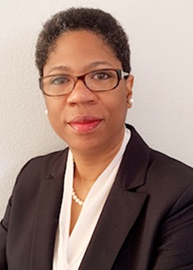
Shelley A. Johnson, EdD, MSN, MBA, RN
Dean & Professor
Florida A&M University
Dr. Shelley Johnson holds a bachelor’s (University of Pennsylvania) and master’s degree (Penn State) in nursing, and a doctorate in educational leadership. She also completed certificate programs from Harvard University in educational leadership and Diversity, Equity and Inclusion and a Community Participatory Research Fellowship at University of Pennsylvania. She is dedicated to life-long learning and was graduated from Northwestern University’s, Kellogg School of Management’s Executive MBA program.
Dr. Johnson has created, taught and led undergraduate and graduate programs for over 18 years. She serves as the Dean and Professor at the Florida A & M University, School of Nursing. She has worked in higher education administration for Chamberlain University, Lincoln University, Rutgers University, LaSalle University, and University of Medicine and Dentistry of New Jersey.
She was the Founding Director and Chair of Nursing and Health Science at Lincoln University in Pennsylvania. She recently served as a Dean at Chamberlain University and as an independent consultant for Kairos Solutions, LLC. Her specialties include higher education, leadership, curriculum and instruction, assessment, and community health. She is certified as a nurse executive, nurse educator, and as a comprehensive systematic reviewer.
Dr. Johnson lives servant leadership. She served as the President of Sigma Theta Tau, Xi Chapter at University of Pennsylvania through 2019 and continues to serve on other community organization boards. She has served as a reviewer for Joanna Briggs Institute, the Journal of Leadership, ABNFF, and Sigma Theta Tau International. She has published articles and book chapters, served as subject matter expert, and participated in research related to a variety of topics. These topics included: Healthy educational environments, health disparities, cultural diversity, advocacy, leadership, VUCA management and digital transformation, and nursing education. Her research interests include nursing, healthcare, and general edu cational practices, healthy work environments, and leadership development.
Tags
Moving the Needle on Meaningful Competency Assessment
November 16, 2022
1:00 PM - 2:00 PM (ET)
Webinar Details
Join Dr. Robert Englander, a leading authority on competency-based education and entrustable professional activities, for observations and insights that will inform your school’s approach to competency-based nursing education. The webinar will address the paradigm shift needed to change how we prepare professional nurses in alignment with the 2021 Essentials. Dr. Englander will discuss Entrustable Professional Activities, address challenges and opportunities associated with competency assessment, and answer questions that will help to accelerate your school’s implementation efforts.
Objectives:
- Understand the context and steps for the paradigm shift to Competency-based Nursing Education
- Discuss the specific challenges in assessment
- Envision the future of assessment using the AACN’s Essentials competencies
For the latest updates and resources on the 2021 Essentials, visit www.aacnnursing.org/AACN-Essentials.
Speakers
Speakers
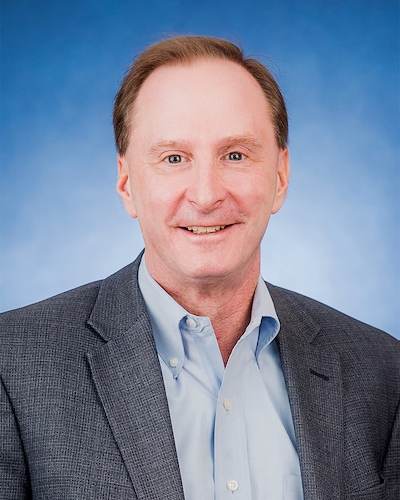
Robert Englander, MD, MPH
Leading Authority on Competency-Based Education and Entrustable Professional Activities
Dr. Englander is the immediate past Associate Dean for Undergraduate Medical Education (UME) at the University of Minnesota. He attended Yale Medical School, received an MPH from Johns Hopkins School of Hygiene and Public Health, completed pediatric residency at Children’s National Medical Center and a Critical Care fellowship at the Massachusetts General Hospital. His career has included stints at the University of Maryland Medical School (1993-2002), the University of Connecticut Medical School (2002-2011), the Association of American Medical Colleges (AAMC) (2011-2015) and the University of Minnesota Medical School (2016-2022). His clinical career has focused on the inpatient care of pediatric patients with an emphasis on quality and patient safety. He served as Vice President of Quality and Patient Safety at the Connecticut Children’s Medical Center from 2005-2011.
Dr. Englander has held leadership positions in both UME and GME with a scholarly focus on Competency-based Medical Education. He was a member of the Pediatric Milestones working group and helped write the General Pediatric Entrustable Professional Activities (EPAs). While at the AAMC, he led the Education in Pediatrics Across the Continuum pilot to test the feasibility of competency-based, time variable progression from medical school through residency. He also led the development of the Core EPAs for Entering Residency, delineating the 13 activities that every graduate of medical school should be able to do on day one of residency, regardless of specialty choice. Dr. Englander is excited in this next phase of his career to continue to advance CBE across the health professions.
Tags
Implementing the New Essentials in the Transformation to Competency Based Education
October 13, 2022
2:00 PM - 3:00 PM (ET)
Webinar Details
Implementing the 2021 Essentials and shifting to competency-based education (CBE) requires organizational models and processes that include intentional faculty development. Transforming curricula with a priority towards prepping graduates who are competent, predictable, resilient, and lead with a social justice lens is paramount. This presentation by Dr. Dawn Mueller-Burke, assistant professor at the University of Maryland, Baltimore, focuses on utilizing a faculty-led model to navigate Essentials implementation, strategies for adapting to CBE, stakeholder engagement, and faculty development.
Speakers
Speakers

Dawn Mueller-Burke, PhD, CRNP, NNP-BC
Assistant Professor/Neonatal Nurse Practitioner
University of Maryland Baltimore
University of Maryland Medical Center
Dr. Mueller-Burke has a clinical focus in the Neonatal Intensive Care arena where she spent most of her career as a Neonatal Nurse Practitioner. She is a graduate of the University of Maryland School of Nursing (UMSON) PhD program with a focus in neonatal neurophysiology. She completed a postdoctoral fellowship at Johns Hopkins University in a developmental genetics laboratory with a focus in stem cell biology. Her research sought to better understand neonatal brain injury and to identify potential interventions, including hypothermia and stem cell therapy to improve outcomes after neonatal brain injury. She shifted her focus to leadership and educational-based endeavors once joining the faculty at the University of Maryland School of Nursing in 2004 where she teaches across degree programs, specifically in the NNP program. She is nationally certified as a Neonatal Nurse Practitioner, with a per diem practice in the NICU at the University of Maryland Medical Center. In 2011 she served as the Faculty Chair of the DNP Transition Task Force incorporating the AACN Essentials, leading all the APN Master’s specialties at UMSON to the doctorate (DNP) beginning Fall 2014. She is currently the Chair of the New Essentials Curricular Revisions Taskforce at UMSON, with a targeted implementation of the graduate programs in the Fall of 2024.
Tags
Partnerships Between Academic Health Departments and Schools of Nursing
April 27, 2022
2:00 PM - 3:00 PM (ET)
Webinar Details & Objectives
This webinar will provide a brief overview of the concept of an Academic Health Department (ADH) and its roles and functions. This will be followed by presenters from AHDs and Schools of Nursing (SON) partnerships, describing how partnerships facilitate both nursing education and health department goals of improving the health of the public. Presenters will share examples of student experiences, challenges encountered and how to overcome them when working in partnership with an AHD, and possible ways to measure outcomes for student learning and health department goals. The AHD/SON partnership is an important mechanism for helping nursing students acquire public/population health knowledge and skills.
Objectives:
- Define Academic Health Department.
- Identify three benefits of SON partnerships with AHDs for the health department and nursing students.
- Describe challenges in implementing AHD/SON partnerships, and potential ways to overcome these.
- List three potential measures of outcomes of AHD/SON partnerships for the nursing students and AHD.
This webinar is funded by the Centers for Disease Control and Prevention’s Academic Partnerships to Improve Health.
Note: Recording of the webinar will be available soon after the webinar airs. Visit AACN's On-Demand Webinars to watch.
Speakers
Speakers
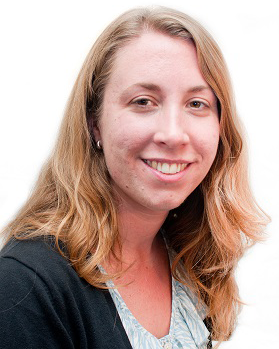
Kathleen Amos, MLIS
Director, Academic/Practice Linkages
Public Health Foundation
Kathleen Amos, MLIS, serves as the Director, Academic/Practice Linkages for the Public Health Foundation. In this role, she supports collaborative public health workforce development initiatives designed to strengthen connections between academia, public health practice, and healthcare. She coordinates the Council on Linkages Between Academia and Public Health Practice and its initiatives, including the Academic Health Department Learning Community and Core Competencies for Public Health Professionals, as well as other performance improvement efforts related to workforce development. Kathleen holds a Master’s degree in library and information studies, with post-graduate training in health sciences information services.
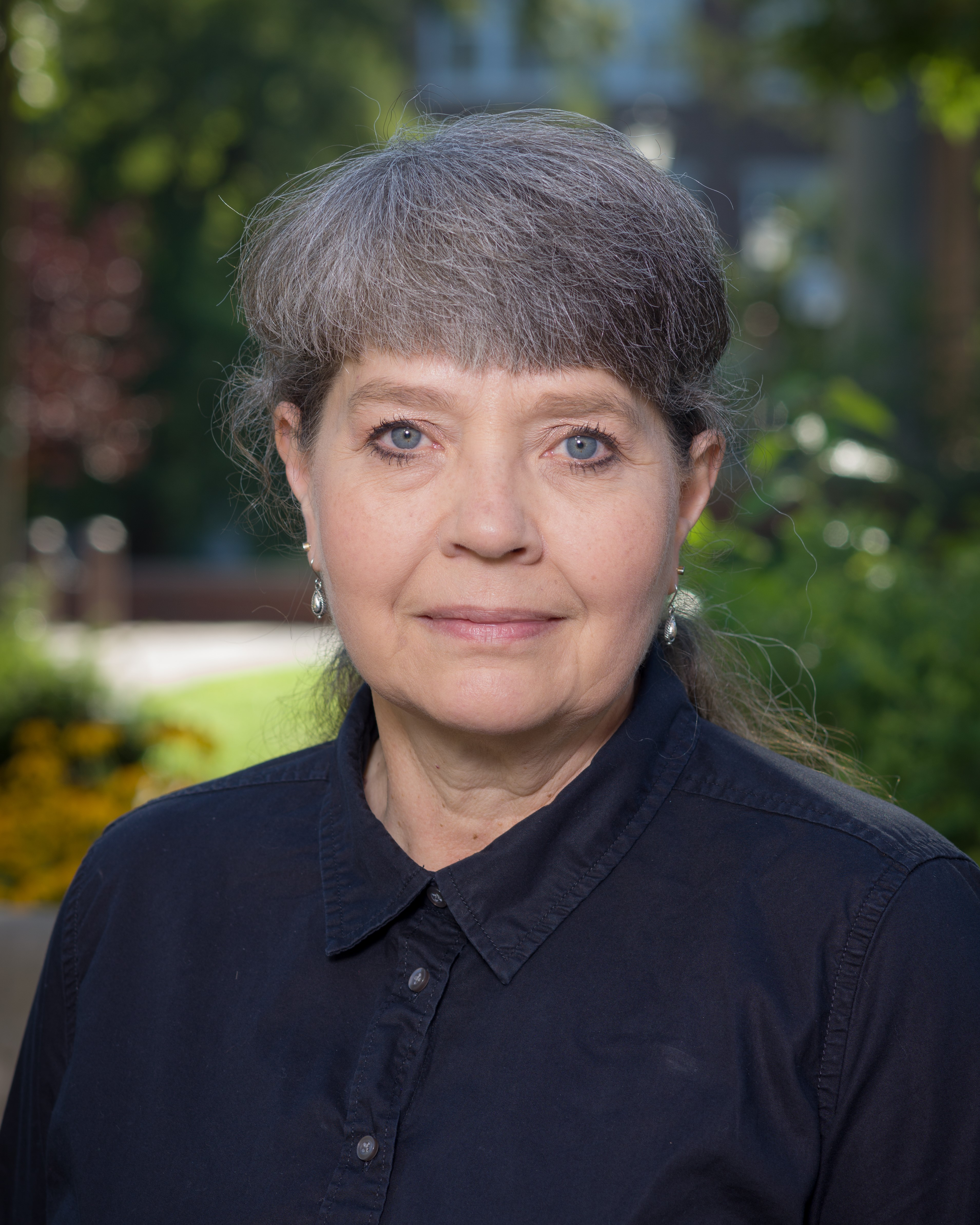
Nola Martz, EdD, MSN, RN
Assistant Professor of Nursing
Truman State University
Nola earned her BSN and MSN (with clinical specialty in Public Health) from the University of Missouri - Columbia (MU). Nola completed her Doctorate of Education with William Woods University where her dissertation research was on the impact of accreditation to public health funding in Missouri. Following her early nursing practice in NICU, rural community hospital and physician practice settings, she has spent the majority of her career in public health nursing in rural and suburban local public health agencies, and with the State health department in Missouri at programmatic and administrative levels. Nola joined the Truman State University (TSU) Nursing Department in Fall of 2021 as an Assistant Professor of Nursing. She currently teaches the NU485 – Rural and Public Health Nursing course and the NU250 Life Span Development course. She has also taught Pharmacology I and II for TSU. Prior to joining the TSU Nursing faculty, Nola taught for 6 years as adjunct instructor and full time as Visiting A ssistant Professor for the graduate Master in Public Health (MPH) online program at MU where she instructed Applied Epidemiology in Community Assessment, and Introduction to Research Methods courses. At MU, she additionally served as a Public Health Consultant for the MU Extension Community Health Team. Nola currently serves on the Missouri Public Health Association Board.
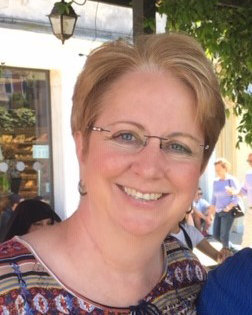
Joann Hoganson, MSN, RN
Director of Community Wellness
Kent County Health Department
Joann Hoganson is the Director of Community Wellness at the Kent County Health Department in Grand Rapids, MI. Prior to this, Joann, along with her husband and four kids, served in Brazil, South America as a missionary nurse for sixteen years. A primary focus of her efforts in Brazil was providing holistic and redemptive care to children and families living on the streets of Salvador, Bahia. Through this experience, she honed her administrative skills, learned the importance of community collaboration, and deepened her passion and commitment to bringing quality, holistic care to those who most need it. Additionally, she has worked as a Nursing Instructor at Grand Valley State University and Davenport University.
Joann is originally from Danbury, Connecticut, and received her Bachelor’s Degree from Cedarville University in Ohio, majoring in Biology and Chemistry. She then received a Master’s Degree in Nursing from Pace University in Pleasantville, NY, just outside of New York City. Joann has a deep commitment to the future generations of nurses and finds joy in passing her acquired knowledge on to future nurses who are diverse, well-prepared, innovative, and culturally competent. These are the people she hopes will carry the nursing torch after her retirement.
Moderator:
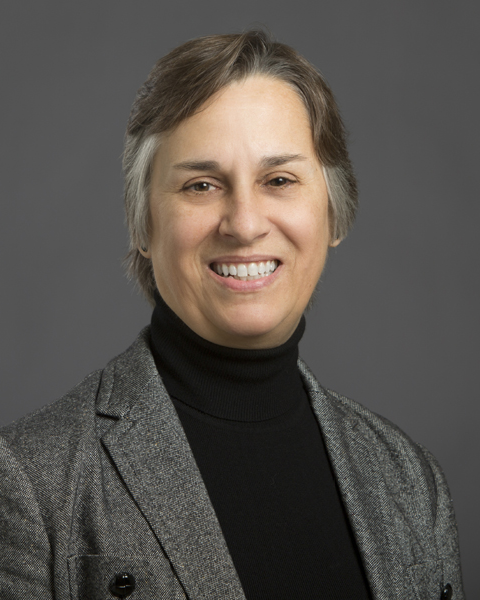
Susan M. Swinder, PhD, PHNA-BC, FAAN
Professor
Community, Systems and Mental Health Nursing
Rush University
Susan Swider is a Professor in the Department of Community, Systems and Mental Health Nursing at Rush University in Chicago. Dr. Swider has practiced in acute care, home health care and public health settings over the past thirty years. Her research has focused on program development and evaluation of community health workers, engaging urban communities in health promotion, and health policy to support health promotion efforts. She has taught public health nursing at the pre-licensure and graduate/specialty level at several universities, and co-directed 10 years of HRSA supported work to develop an online doctoral program in Advanced Public Health Nursing, ensuring that it met the Quad Council competencies for Public Health Nursing practice. She is a member of a number of public health and public health nursing organizations, and is a past president of the Association of Community Health Nursing Educators (ACHNE). In her role with ACHNE, she served on the Quad Council for Public Health Nursing organizations, and was a member of the Task Force that revised the Competencies for Public Health Nursing (2010-2012). In 2011, Dr. Swider was appointed by President Obama to the Advisory Group on Prevention, Health Promotion and Integrative and Public Health, a group designed to advise on the development and implementation of the National Prevention Strategy. She is also a fellow of the American Academy of Nursing and of the Institute of Medicine of Chicago. In 2016, she was appointed to serve on the Community Preventive Services Task Force of the Centers for Disease Control and Prevention.
Tags
Catalyzing Climate Change Content in Health Professions Education
April 22, 2022
2:00 PM - 3:00 PM (ET)
Webinar Details & Objectives
As a leading public health concern of the 21st century, climate change will continue to affect global population health. Health professionals and health professions educators have important and unique roles in proactively addressing climate change and its implications. To try and create a healthier, climate-resilient future, schools and programs that train health professions students should integrate climate change and its health effects into the curricula.
Webinar participants will hear models and resources that can be used to help institutions integrate climate-health content into health professions curricula.
Objectives
- Compare educational models and resources to train health professions students to prevent, mitigate, and respond to the health consequences of climate change
- Apply the new GCCHE Climate & Health Competencies for Health Professions Students
- Summarize “lessons learned” in the development and implementation of climate-health curricula
To Register
For AACN Members, click on the "Register" button on the left side of the screen. For Non-AACN members, click on the registration button below.
Non-AACN Member Registration Form
Note: Recording of the webinar will be available soon after the webinar airs. Visit AACN's On-Demand Webinars to watch.
Speakers
Speakers
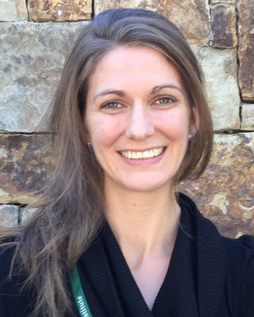
Cecilia Sorensen, MD
Director, Global Consortium on Climate and Health Education
Associate Professor, Department of Environmental Health Sciences, Mailman School of Public Health
Associate Professor, Department of Emergency Medicine
Columbia University
Cecilia Sorensen, MD is the Director of the Global Consortium on Climate and Health Education at Columbia University, Associate Professor of Emergency Medicine at Columbia Irving Medical Center and Associate Professor of Environmental Health Sciences at Mailman School of Public Health, Columbia University. Dr. Sorensen received her Doctor of Medicine from Drexel University College of Medicine and completed a four-year emergency medicine residency at Denver Health. Following residency training, she completed a 2-year fellowship in climate change and human health policy with the National Institute of Environmental Health Sciences (NIEHS). Her work focuses on the intersection of climate change and health and how policy solutions, clinical action and education can build resilience in vulnerable communities. She currently serves on the working group for the National Academy of Medicine’s Climate and Human Health Initiative. She was an author for the U.S. Fourth National Climate Assessment and serves as a technical advisor for the Lancet Climate and Health U.S. Policy Brief. She is the co-editor of the textbook Climate Change and Human Health: From Science to Practice.
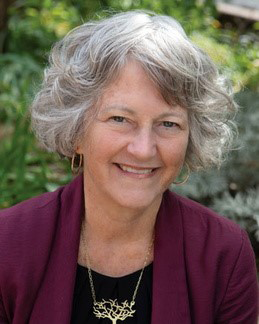
Teddie M. Potter, PhD, RN, FAAN, FNAP
Clinical Professor/Coordinator, Doctor of Nursing Practice in Health Innovation and Leadership
Director of Planetary Health; Pauline A. Vincent Chair of Public Health
Directorate, Katharine J. Densford International Center for Nursing Leadership
School of Nursing
University of Minnesota
Dr. Potter is deeply committed to climate change education including co-founding Health Professionals for a Healthy Climate, membership in the Alliance of Nurses for Healthy Environments, and membership on the American Academy of Nursing Environment and Public Health Expert Panel. She is a member of the Coordinating Committee of Columbia University’s Global Consortium on Climate and Health Education and a Fellow in the Institute on the Environment at the University of Minnesota. She chairs Clinicians for Planetary Health (C4PH) and is a member of the Steering Committee of the Planetary Health Alliance at Harvard.
At the University of Minnesota, Dr. Potter designed and co-teaches an interdisciplinary course titled “The Global Climate Challenge: Creating an Empowered Movement for Change”. In addition, she co-leads a Health Sciences initiative titled, “Climate Change and Health: An Interprofessional Response”. In 2019, Dr. Potter was appointed the first Director of Planetary Health for the School of Nursing.
In addition, Dr. Potter is Executive Editor for the Interdisciplinary Journal of Partnership Studies; a peer-reviewed, open-access, online journal promoting interdisciplinary collaboration as a solution for solving society’s grand challenges.

Dorothy Biberman, MPH, CPH
Director of Global Engagement and Executive Initiatives
Association of Schools and Programs of Public Health
Tags
“How To’s” for Building a Competency-Based Education Program
March 08, 2022
12:00 PM - 1:00 PM (ET)
Webinar Details
Dr. Gerry Altmiller, professor of nursing and director of The College of New Jersey Quality and Safety Innovation Center, discusses how to encourage faculty colleagues to utilize competency-based education strategies aligned with the 2021 Essentials. Topics include approaches for conducting effective and useful curriculum mapping and strategies for streamlining the process for colleagues. Dr. Altmiller will share examples for integrating sub-competencies appropriate to pre-licensure, RN-BSN, and graduate education into curricula, along with ideas to operationalize this new alignment on a small and large scale.
For the latest updates and resources on the new AACN's Essentials, visit www.aacnnursing.org/AACN-Essentials.
Speakers
Speakers
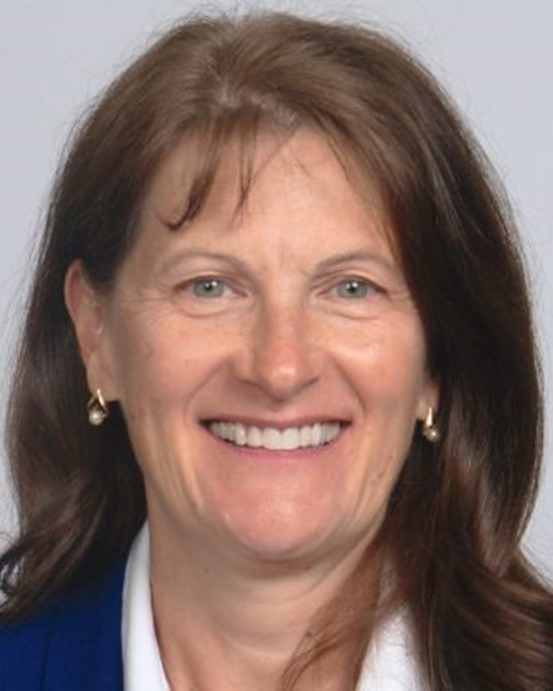
Gerry Altmiller,EdD, APRN, ACNS-BC, ANEF, FAAN
Professor of Nursing
The College of New Jersey
Gerry Altmiller, EdD, APRN, ACNS-BC, ANEF, FAAN, is a professor of nursing at The College of New Jersey, a clinical nurse specialist consultant for Einstein Healthcare Network in Philadelphia, Pennsylvania, and has pioneered the integration of quality and safety competencies in nursing education since 2006 when she served as a faculty leader for one of the 15 pilot schools for the Quality and Safety Education for Nurses (QSEN) Collaboration. She currently is a national consultant for QSEN and director of the Quality and Safety Innovation Center at The College of New Jersey. She leads the QSEN Academic Task Force, creating opportunities for its 110 members to network, share ideas, and conduct academic focused research. Dr. Altmiller authored the Teamwork and Communication Module of the National Council of State Boards of Nursing’s Transition to Practice program and in 2014 she received a Lindback Award for distinguished teaching. Her work on constructive feedback led to the development, testing, and dissemination of support tools for nurse educators and learning tools for students to view feedback as an opportunity. Dr. Altmiller was co-editor of a special QSEN issue of Nurse Educator and currently serves on the journal’s editorial board. Her research focuses on clinical evaluation, QSEN integration, and communication challenges in educational and practice environments.
Tags
Introduction to Competency-Based Education
September 28, 2021
1:00 PM - 2:15 PM (ET)
Webinar Details
Nursing educators Margaret Rauschenberger, Dr. Judeen Schulte, and Ann Van Eerden from Alverno College, lead a discussion on the evolution of competency-based education from a “journeyman” approach to an ability-oriented, outcome-based framework. This webinar relates contemporary concepts and definitions of competency-based education to nursing education as expressed in the 2021 Essentials.
For the latest updates and resources on the 2021Essentials, visit www.aacnnursing.org/AACN-Essentials.
Speakers
Speakers
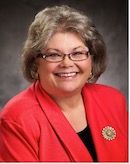
Margaret Rauschenberger, MSN, RN
Professor, Dean of Nursing Emerita, and Associate Dean
School of Adult Learning and New Initiatives
Alverno College
Peg Rauschenberger, MSN, RN, is an associate dean in the School of Adult Learning and New Initiatives in charge of health related programming, and the dean emerita of Alverno College's JoAnn McGrath School of Nursing and Health Professions. She has been consulting and lecturing since 1997, and has presented numerous workshops nationally and internationally on topics including ability-based education, nursing education, child and adolescent mental health care, nursing in corrections, conflict resolution, stress management and the effects of stress on health.
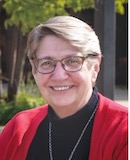
Judeen Schulte, PhD, RN
Professor
JoAnn McGrath School of Nursing and Health Professions
Alverno College
Judeen Schulte, PhD, OSF, is a professor of Nursing at Alverno College where she has taught since 1980. In addition to her nursing expertise, Schulte has given presentations on Alverno’s abilities-based curriculum across the country, as well as around the world. She has also served as a consultant to several universities here and abroad on performance assessment, student learning and abilities-based curricula.
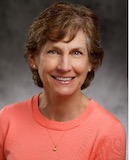
Ann Van Eerden, MSN, MS, RN
Associate Professor
JoAnn McGrath School of Nursing and Health Professions
Alverno College
Ann Van Eerden, MSN, MS, RN, CNE, NCSN, is an associate professor of nursing in the JoAnn McGrath School of Nursing and Health Profe ssions at Alverno College. She also serves as the director of both the Undergraduate Nursing Program and the Health Education Program. She has nearly 40 years of nursing experience and has been teaching since 2008.
Tags
Public Health Insight into the COVID-19 Pandemic
April 13, 2020
2:00 PM - 3:00 PM (ET)
Webinar Details & Objectives
As we continue to address the Coronavirus Pandemic, join AACN’s President and CEO, Dr. Deborah Trautman, for an insightful conversation with Dr. Georges C. Benjamin, Executive Director for American Public Health Association - For Science. For Action. For Health.
NOTE: Please view the webinar through the button below.
Webinar Resources
Register for the upcoming COVID-19 related webinars, listed below:
- Creating Calm and Civility during Uncertain Times
Friday, April 17 at 12:00 pm (ET) - Interprofessional Teaching and Collaborative Practice During COVID-19: A Community Conversation
Monday, April 23 at 2:00 pm (ET)
View the On-Demand COVID-19 related webinars, listed below:
- Making Informed Decisions in Response to COVID-19
- F.A.S.T: Academic Nurse Educators Respond to COVID-19
- Bridging the Gap- Implementing Technology to Deliver Courses Online
- A Call to Leadership: Navigating Uncharted Waters
- Aligning Simulation within COVID-19 Contingency Plans
- COVID-19: Update from Nursing Leadership on the Front Lines
- Teaching Nursing Students How to Manage Crisis During COVID-19
- COVID-19: Breaking Through Denial to Action
- COVID-19 Series: Techniques to Teach Assessment Online NOW!
- Public Health: Nursing Education and the COVID-19 Pandemic
- Considering Pass or No Pass education in response to the COVID-19 Pandemic
These webinars are free and open to the public. Recordings of the webinars will be available soon after the webinars air.
Speakers
Panelists
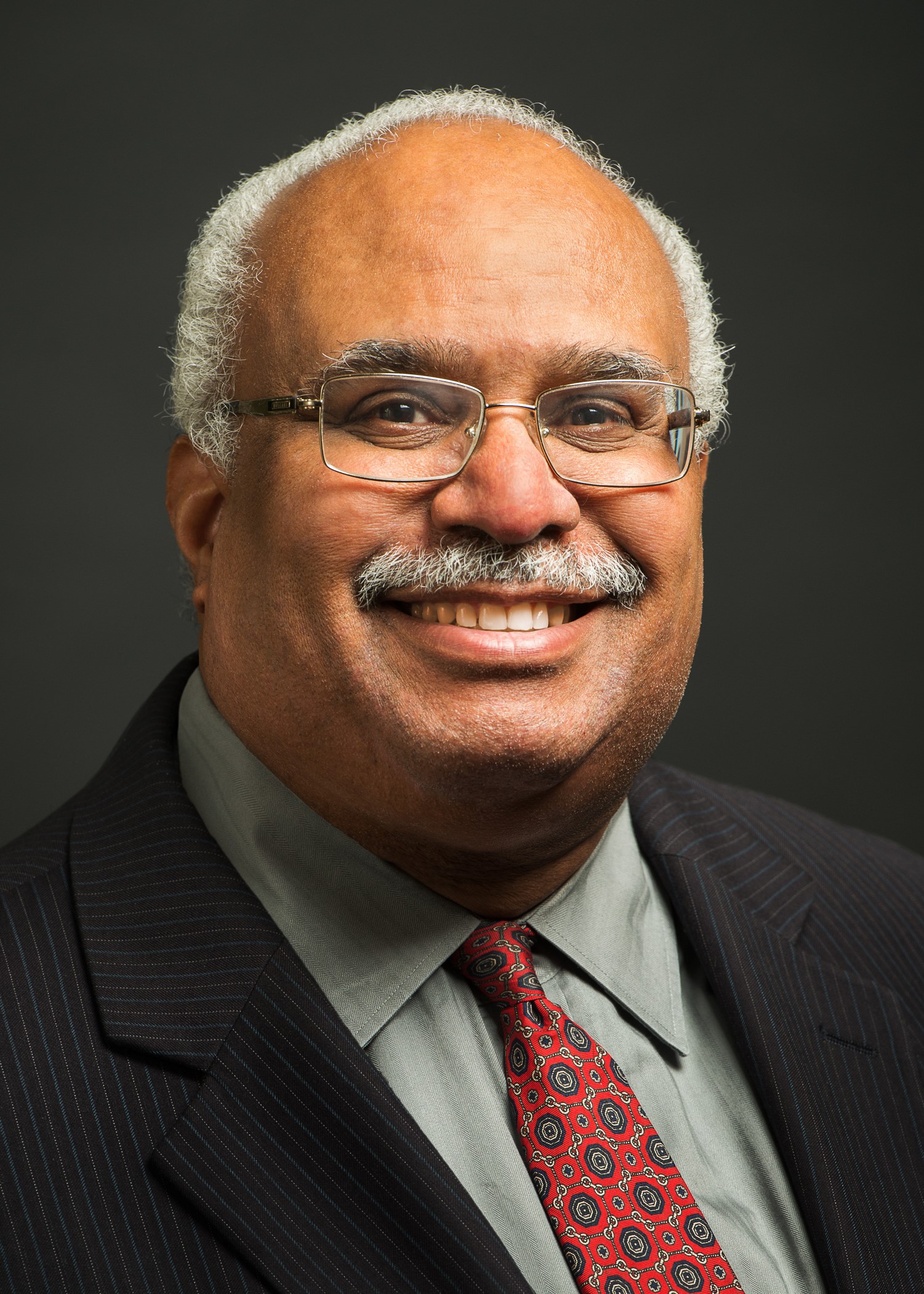 Georges Benjamin, MD, MACP, FACEP(E), FNAPA, Hon FRSPH, Hon FFPH
Georges Benjamin, MD, MACP, FACEP(E), FNAPA, Hon FRSPH, Hon FFPHExecutive Director
American Public Health Association
Dr. Benjamin is known as one of the nation’s most influential physician leaders because he speaks passionately and eloquently about the health issues having the most impact on our nation today. From his firsthand experience as a physician, he knows what happens when preventive care is not available and when the healthy choice is not the easy choice. As executive director of APHA since 2002, he is leading the Association’s push to make America the healthiest nation in one generation.
At APHA, Benjamin also serves as publisher of the nonprofit's monthly publication, The Nation's Health, the association's official newspaper, and the American Journal of Public Health, the profession’s premier scientific publication. He is the author of more than 100 scientific articles and book chapters. His recent book The Quest for Health Reform: A Satirical History is an exposé of the nearly 100-year quest to ensure quality affordable health coverage for all through the use of political cartoons. Benjamin is a member of the National Academy of Medicine (Formally the Institute of Medicine) of the National Academies of Science, Engineering and Medicine and also serves on the boards for many organizations including Research!America and the Reagan-Udall Foundation. In 2008, 2014 and 2016 he was named one of the top 25 minority executives in health care by Modern Healthcare Magazine, in addition to being voted among the 100 most influential people in health care from 2007-2017.
 Deborah Trautman, PhD, RN, FAAN
Deborah Trautman, PhD, RN, FAANPresident and Chief Executive Officer
American Association of Colleges of Nursing
Dr. Deborah Trautman assumed the role of AACN’s President and C hief Executive Officer in June 2014. Formerly the Executive Director of the Center for Health Policy and Healthcare Transformation at Johns Hopkins Hospital, Dr. Trautman has held clinical and administrative leadership positions at the University of Pittsburgh Medical Center and the Johns Hopkins Medical Institutions. She also served as the Vice President of Patient Care Services for Howard County General Hospital and as Director of Nursing for Emergency Medicine at the Johns Hopkins Hospital.
Since her appointment at AACN, Deb has been asked to join a number of high-profile boards and advisory groups. The Secretary of U.S. Department of Veterans Affairs' Special Medical Advisory Group (SMAG), which advises the VA Secretary on matters related to healthcare delivery, research, education, training of healthcare staff and planning on shared care issues facing VA and the Department of Defense. In addition, the Robert Wood Johnson Foundation (RWJF) named her program director of the New Careers in Nursing project, and her colleagues with the Interprofessional Education Collaborative (IPEC) elected her to serve as Chair as of 2019. She also serves on the Joint Commission’s Chief Nurse Executive Council.
Tags
COVID-19 Series: Techniques to Teach Assessment Online NOW!
April 03, 2020
1:00 PM - 2:00 PM (ET)
Webinar Details & Objectives
This webinar will dive into strategies on how to move physical assessment courses online classes. The webinar will include a conversation around promoting student engagement while ensuring student competency, and touch on a variety of assessments that transition to the virtual space. An online model for conducting objective structured clinical examinations (OSCEs) will also be shared.
Objectives
- Provide faculty with approaches and strategies for moving their physical assessment courses online.
- Describe how to promote student engagement and ensure student competency.
- Describe online model for conducting objective structured clinical examinations (OSCEs).
NOTE: Please view the webinar through the button below.
Webinar Resources
Register for the other COVID-19 related webinars, listed below:
- Making Informed Decisions in Response to COVID-19
Recording Available - F.A.S.T: Academic Nurse Educators Respond to COVID-19
Recording Available - Bridging the Gap- Implementing Technology to Deliver Courses Online
Recording Available - A Call to Leadership: Navigating Uncharted Waters
Recording Available - Aligning Simulation within COVID-19 Contingency Plans
Recording Available - COVID-19: Update from Nursing Leadership on the Front Lines
Recording Available - Teaching Nursing Students How to Manage Crisis During COVID-19
Watch March 30, 2:00 p.m. (ET)
These webinars are free and open to the public. Recordings of the webinars will be available soon after the webinars air.
Speakers
Panelists
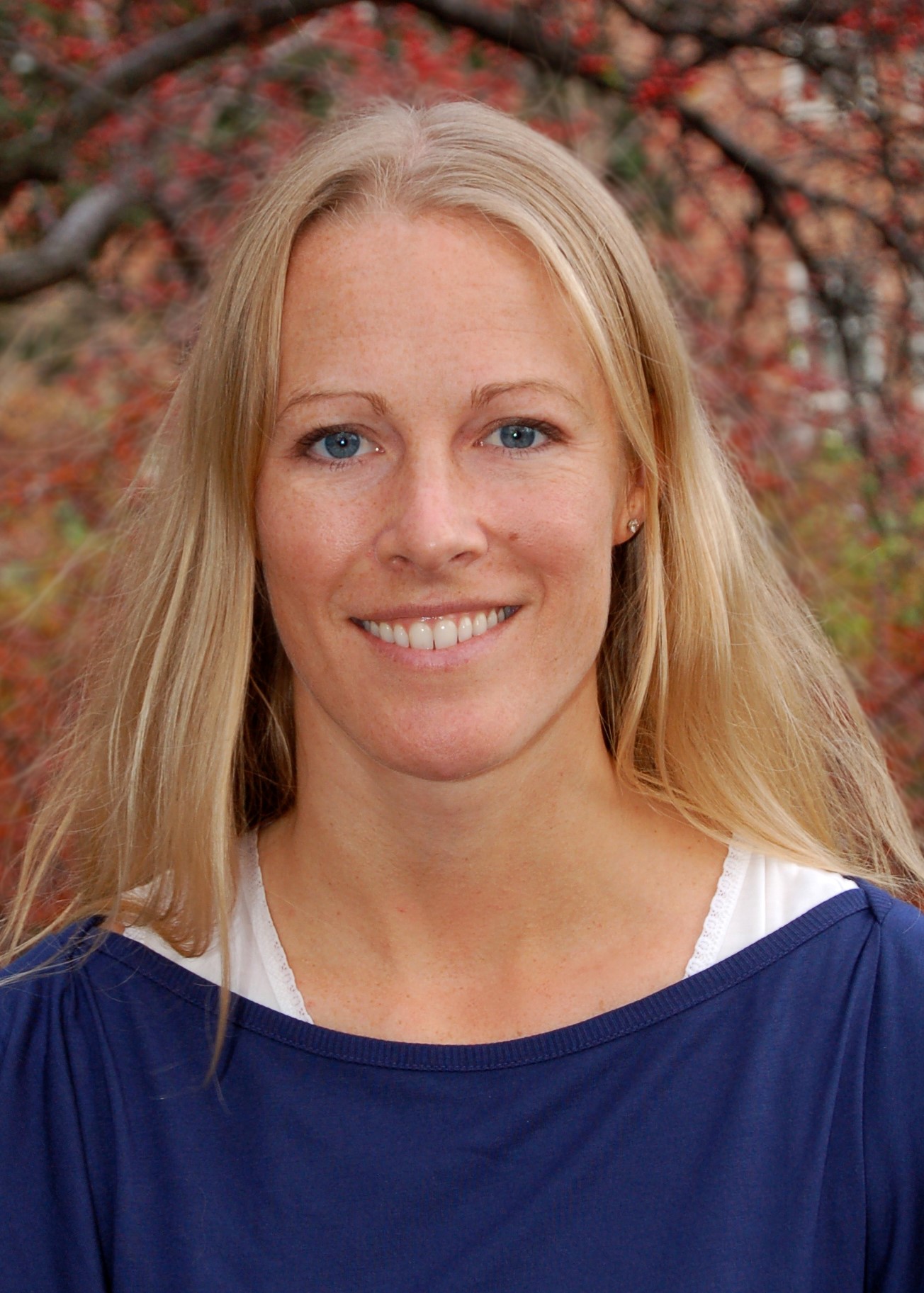 Kate Sustersic Gawlik, DNP, APRN-CNP, FAANP
Kate Sustersic Gawlik, DNP, APRN-CNP, FAANPAssistant Professor of Clinical Nursing
The Ohio State University
Project Manager, Million Hearts
Kate Gawlik is an Assistant Professor of Clinical Nursing, Director of the Health and Wellness Innovation in Healthcare program, and Project Manager for the Million Hearts® initiative at The Ohio State University. She is board certified as a Family Nurse Practitioner. Her clinical interests are cardiovascular population health, preventive medicine, clinician well-being, evidence-based physical assessment, and online nursing education. She has taught advanced assessment for over 10 years and has been teaching it all online for five of those years. She was awarded the 2018 American Association of Nurse Practitioner State Award for Excellence for Ohio. She was inducted as a Fellow into the American Association of Nurse Practitioners in June 2018.
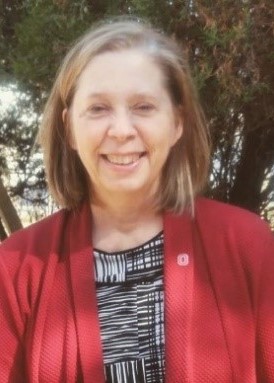 Alice M. Teall, DNP, APRN-CNP, FAANP
Alice M. Teall, DNP, APRN-CNP, FAANPAssistant Professor of Clinical Nursing
The Ohio State University
Alice M. Teall is an Assistant Professor of Clinical Nursing, Director of Telehealth Services, and Director of Academic Wellness Programming at the Ohio State University College of Nursing. While serving as director of the online Family Nurse Practitioner program, she was honored with the Ohio State University Provost Award for Distinguished Teaching. An experienced educator, Alice Teall has taught assessment online and on campus for students across nursing programs including traditional undergraduate, RN-BSN completion, accelerated graduate entry, graduate, and doctoral programs. Dr. Teall is a Fellow of the American Academy of Nurse Practitioners; her contributions to advanced practice education include innovative use of synchronous web-conferencing, incorporation of well ness coaching techniques in clinical practice, and use of telehealth as an evaluation strategy for distance students.